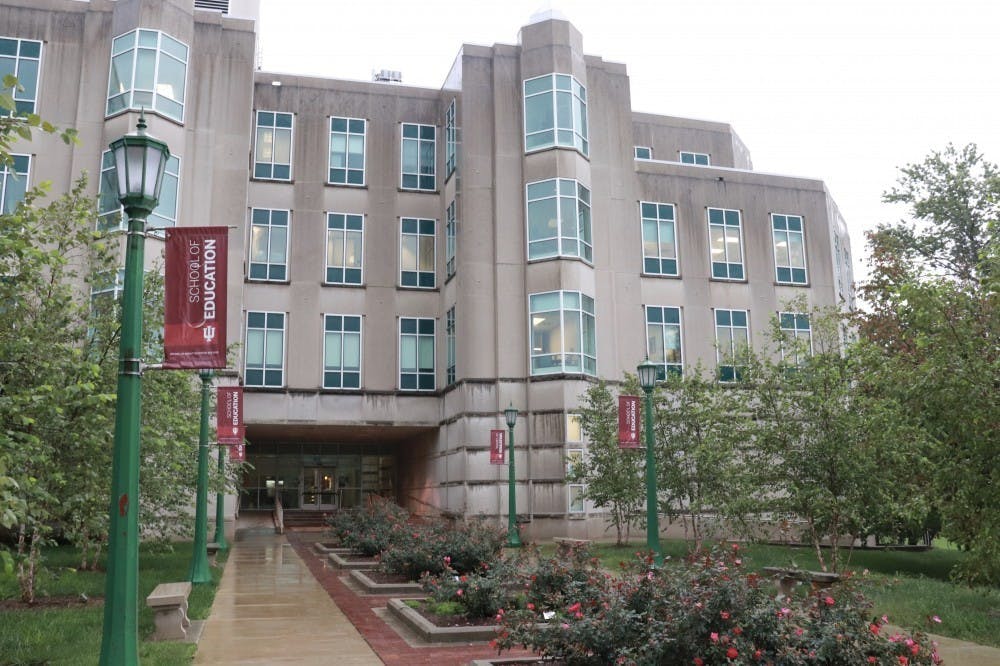I n a normal school year, Rachel Dyer, an IU School of Education student, would be in a classroom, helping children learn to read and teaching them how to make words into thoughts and ideas on a page.
But this year with the COVID-19 pandemic, Dyer is behind a computer screen, unable to meet with students in person. Zoom has replaced hands-on interaction, and she meets with a single student, a fourth grader, one hour a week.
Dyer is part of the School of Education’s new virtual K-12 tutoring program, which is free and open to any K-12 student who signs up using the online form. Tyna Hunnicutt, co-director of clinical experiences and director of early field experience in the School of Education, said the program was born out of a desire to help both IU students and kids across the state.
“Over the summer discussions about the program started, and we knew that there were students who might not be able to get into schools," Hunnicutt said. "We started contemplating different ways to work with the community so students could get experience working with kids and also helping out with the community."
The program began doing outreach in August and September to find families, but it took until early October to officially get the program started and match students with each other.
“Stability has been one of the biggest challenges, just making those connections,” Hunnicut said. “People had signed up and then things changed for them, so some of our IU students have been reaching out and not getting responses so we’ve had to rematch them.”
Hunnicutt said about 200 families have now signed up, having put their child’s grade and specific needs on the form to be best matched with someone.
Some tutors are volunteers, but many have used the opportunity to fulfill requirements for their School of Education service learning program, like Dyer.
The program offers tutoring in many subjects. Dyer is doing a literacy block, which means she assists her student with reading and writing skills.
This year, student teachers have to go into tutoring sessions with a lesson plan — a change from helping students with homework or materials from their teachers. Dyer said that a more intense approach has given her a new sense of confidence because she has honed new strategies.
She said that while this year has been a learning curve, it has prepared her for the possibility of teaching virtually in the future and opened her eyes to new tools. Programs such as Padlet, LucidSpark and Google Jamboard have allowed her to better collaborate with students virtually in ways such as sharing an interactive whiteboard.
“Just learning to be flexible and adaptable which is honestly one of the main characteristics a teacher should have. So it’s great practice,” said Dyer.
As the program has gone on, Hunnicutt said she thinks it has been going well. She’s joined a couple of sessions, where she said she’s seen positive interactions between K-12 students and IU tutors.
“The successes have been really fun to watch,” she said. “We’ve had students sharing how much it’s different than they thought it was going to be to help students one on one and to do it virtually. I’ve been able to join a couple of sessions and get to see kids reading to their tutors, asking cute questions, fun questions, challenging ones.”
Hunnicutt also saidparents are are happy their children have another person to talk about schoolwork with. Dyer said it is beneficial to build different connections because as a younger teacher she may think of unique strategies and approaches.
Looking toward the future, Dyer plans to become an elementary school teacher, licensed through eighth grade for math, her favorite subject. However, she hopes to eventually also get her master’s degree in administration.
But for now, Dyer said the program wants to leave children with materials to improve literacy skills, such as book suggestions, that guide families toward what their child needs and make them feel comfortable to help at home. Ultimately, she wants to make a difference in her student’s life by participating in the program.
“I would say just hopefully they can maybe use me as a possible future resource and I'm hoping that our relationship withstands beyond the program,” said Dyer.




